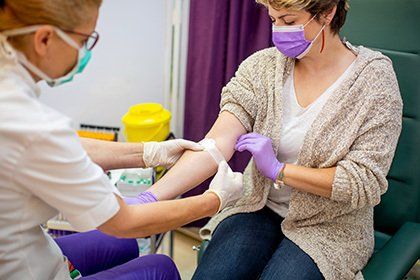Laboratory Test (Blood Draws)
PATIENT AUTHORIZED DIRECT ACCESS TESTING.
Direct Access Testing allows patients to be involved directly in their health care and collaborate with their physician while enjoying cost savings and convenience. We are your convenient, local resource for ordering laboratory tests.
WHY SHOULD I ORDER MY OWN BLOOD TESTS?
- Knowing your test results enables you to work with your doctor and Schwieterman Pharmacies to avoid health problems and choose the best health practices for you.
- This convenient service can reduce doctor visits and provide you a significant discount.
HOW IT WORKS
- You can request the testing by calling your Schwieterman Pharmacies.
- Service is by appointment only, at any of our 5 locations.
- Results are mailed to you allowing you to consult with your physician as needed.
TAKE CHARGE OF YOUR HEALTH!
View the list of available Laboratory Test below and Get Started Today!


